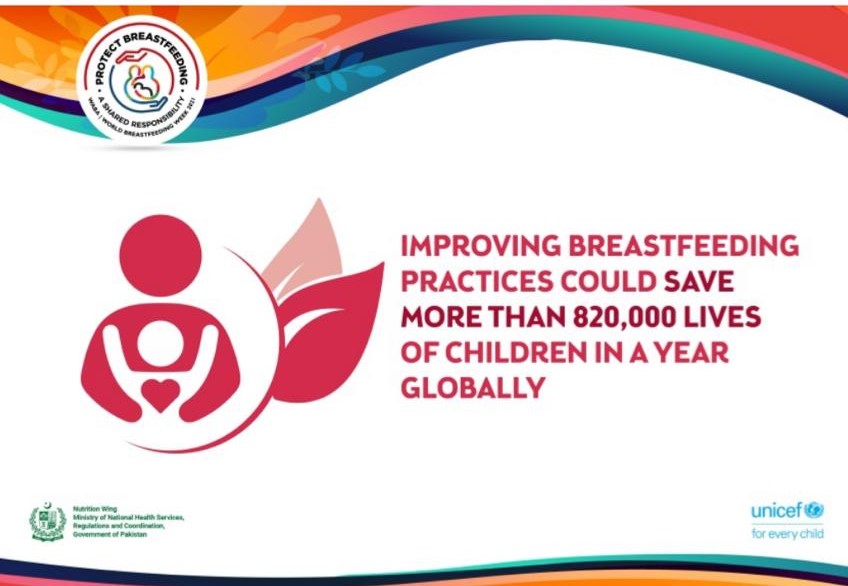

As the world looks towards alternate and easier access to most foods, materials, and even services we often stray further away from the natural options as we deem them too “traditional” or options of the past. The rise of synthetic and processed products has therefore made a huge impact on the global market. Similarly, with the worldwide pandemic of Covid-19, a few child food advertisers have attempted to overrule the governments’ endeavors in advancing exclusive breastfeeding. Subsequently, these advertisers have constrained a few mothers that covid-19 can be transferred to their infants through breastfeeding. Yet, every mother should have to realize that this assertion is a long way from the actual reality.
WHO Guidelines + Covid:
As per WHO Guidelines, if a mother turns into a confirmed positive case of Covid-19, she ought not to swear off breastfeeding her infant. Those guidelines obviously express that no research and testing has shown the presence of viral substances in breast milk. Thus, there is zero chance of transmission of Covid-19 during breastfeeding. Nonetheless, the nursing mother should play it safe of Covid-19 like wearing masks, washing hands, and keeping up with great cleanliness.
Start of life:
Breastfeeding provides children the best start in life. It is a baby’s best source of nutrition, bolstering brain development with lifelong benefits for a baby. Breastfeeding acts as a baby’s first vaccine, providing critical protection from diseases and death. Early initiation of breastfeeding, exclusive breastfeeding, and continued breastfeeding offers a powerful line of defense against all forms of childhood malnutrition including wasting. Breastfeeding saves lives and protects children from deadly infections. Therefore breastfeeding is singularly the most effective public health intervention. We have to give all children everywhere the best start in life. It is a human right for mothers and their babies, and it should be protected and promoted.
Progress worldwide:
Inspiring progress has been made in improving breastfeeding rates around the world. But there is still significant work to be done to promote, protect and support breastfeeding. In the last four decades, there has been a 50 percent increase in the prevalence of exclusive breastfeeding. As a result, an estimated 900 million infants globally have enjoyed the survival, growth, and development benefits of exclusive breastfeeding in infancy. Despite the compelling evidence, breastfeeding rates are far too low in many countries. Only 44 percent of infants are exclusively breastfed in the first six months, which falls far short of the global targets of 50 percent by 2025, and less than half of newborn babies are breastfed in the first hour of life, missing out completely on the benefits of breastfeeding to survive and thrive.
Aggressive marketing campaigns:
More concerningly, the aggressive marketing of breastmilk substitutes is undermining breastfeeding and the incredible progress made, putting the health of mothers and children at risk. The Code remains as relevant today as it was 40 years ago when it was passed on 21st May 2021. We urge manufacturers of infant formula to fully adhere to the standards in the CODE as mandated by the World Health Assembly and its member states.
A safe and healthy method:
It is safe to continue breastfeeding even if a mother is suspected or confirmed positive to have COVID-19. Women currently breastfeeding or providing expressed milk can receive the COVID-19 vaccines. With the COVID-19 pandemic, we have seen disruption in access to infant and child feeding services threatening to reverse some of the gains made in many countries. There is no reason to discontinue breastfeeding in the wake of the COVID-19 pandemic, despite unfounded claims promoted by baby food marketers that breastfeeding could transmit COVID-19. The evidence is clear. Breastfeeding is safe for infants and young children even when mothers are suspected or known to have COVID-19. The numerous benefits of breastfeeding substantially outweigh the potential risks of illness associated with the virus. Breastfeeding is vital to the health of infants and their mothers.
Breastfeeding rates:
Improving breastfeeding rates and practices requires action on the part of multiple actors including governments, health care institutions, health care workers, and businesses. This year’s World Breastfeeding Week theme – “Protect Breastfeeding: A Shared Responsibility’ – rightly focuses attention on the role everyone should play in supporting breastfeeding at all levels. They must also demonstrate action by making tangible commitments towards the full and effective promotion and support of breastfeeding. Governments must fully implement the International Code of Marketing of Breast-Milk Substitutes through strong legal measures that are enforced and independently monitoring the compliance of health professionals and health facilities. Businesses and employers should implement family-friendly policies that support mothers with time, space, and support to breastfeeding, including providing at least 18 weeks of paid maternity leave. For many mothers, the return to work is a barrier to breastfeeding their babies and providing the best possible nutrition.
Conclusion:
As early breastfeeding gives the infant maternal immunity, in this manner it will help the infant battle preferred with contamination over a child who is not breastfed. Aside from that, the mother ought to abstain from coughing or sniffling during breastfeeding to confine different methods of transmission and create a safe environment. Accordingly, to guarantee the better well being of both mother and kids, the general public of Pakistan and those all throughout the planet ought to promote exclusive breastfeeding
